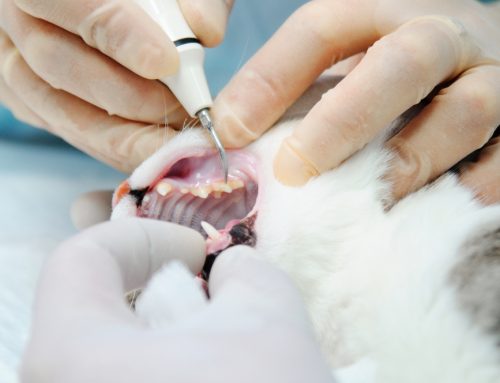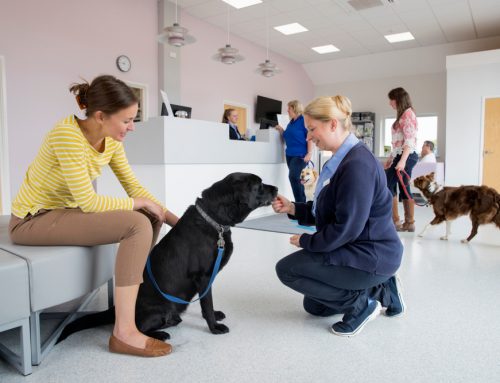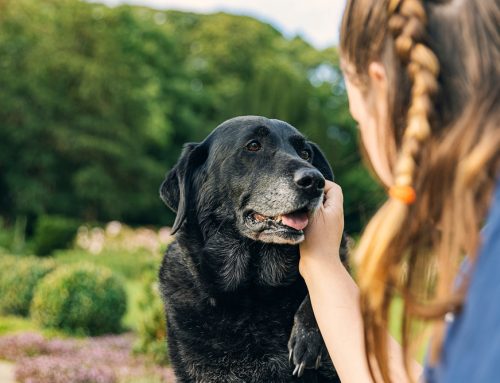 While some vaccinations are considered “core” or required by law, many others are lifestyle-dependent, and certainly not all pets require every vaccine. On onehand we are fortunate that some of the most ominous diseases can be preventedwith something as simple as a vaccine, but of course there are some pets whose immune systems do not respond as well to vaccination as we’d like.
While some vaccinations are considered “core” or required by law, many others are lifestyle-dependent, and certainly not all pets require every vaccine. On onehand we are fortunate that some of the most ominous diseases can be preventedwith something as simple as a vaccine, but of course there are some pets whose immune systems do not respond as well to vaccination as we’d like.
What kind of reactions are we talking about? The vast majority are more of an annoyance than anything else. It is not uncommon for dogs and cats to feel a little tired or sore after receiving vaccines, particularly if they have had multiple in one day. This represents the immune system’s normal function and is nothing to worry about. Some may develop a low fever, experience soft stool or an episode of vomiting, and this kind of reaction is concerning only if it continues or the pet seems really uncomfortable. The kind of reaction that is really concerning (and fortunately rare) is an animal who develops hives, continues to vomit or have diarrhea, seems restless or agitated, experiences swelling (most commonly of their face), or has difficulty breathing. Not to worry, even the most severe reactions can be reversed – this is why your veterinarian will advise you to keep a close eye on your pet for a little while after vaccines, especially as a puppy or kitten.
The first step, of course, is to discuss your pet’s lifestyle with your veterinarian and determine which vaccines make sense to use. Does your cat go outdoors and interact with other cats? Does your dog enjoy a weekend hike in the woods, or does she attend doggie day care? If the answer is no, some vaccinations are altogether unnecessary. Do you regularly apply a tick preventative product and find it to be very effective? Then we might consider skipping the Lyme vaccine, even if your dog spends a lot of time outside.
What should be done about a dog who we’ve determined SHOULD have a given vaccine, but in the past, she has had a serious reaction following vaccination? And what about pets who have autoimmune diseases, and we are concerned their condition may flare up due to the stimulation of the immune system that is caused by a vaccine? Fortunately, there are steps we can take to ease these concerns.
For a pet who has had a history of a vaccine reaction, simply giving a dose of Benadryl before vaccines can prevent a similar reaction. Your veterinarian can advise you on an appropriate dose of Benadryl to give at home before the appointment, or it can be given by injection just prior to giving vaccines. We might also avoid giving multiple vaccines on the same day, to make the immune system’s job easier and reduce the likelihood of any reaction. Your veterinarian also knows that some specific brands or categories of vaccines have a slightly higher reaction rate thatothers (data is continually collected on this, and even the most reactive vaccines affect less than 2% of dogs andcats), and she may already be avoiding these products altogether for your pet.
For a pet who is at risk of having a severe reaction, we have a chance to avoid vaccination altogether, while still assuring the pet is protected from infectious diseases. An antibody titer is a blood test that can be sent to a laboratory and determine if your pet already has immunity lasting from the previous time they were vaccinated.
Many pets do! The required vaccines for adult dogs and cats are typically considered “good” for up to three years,
many pets will actually have immunity longer than this. Not all will, of course – but we may be able to avoid
unnecessary re-vaccination in majority by checking a titer.
Why don’t we do this for everyone, you wonder? The answer is due to cost. Regardless of what veterinary hospital
your pets visit, a titer is likely to be significantly more expensive than a vaccine. And because less than 1% of pets have serious trouble after getting their vaccines, it usually makes sense to go ahead and give a booster shot. But for the occasions when we want or need to know if vaccination is necessary, a titer test is available. We hope you will discuss the need for vaccinations or titers with your veterinarian if you have any concerns about vaccine reactions in your pet.
To download and print this article, please click here.






Leave A Comment